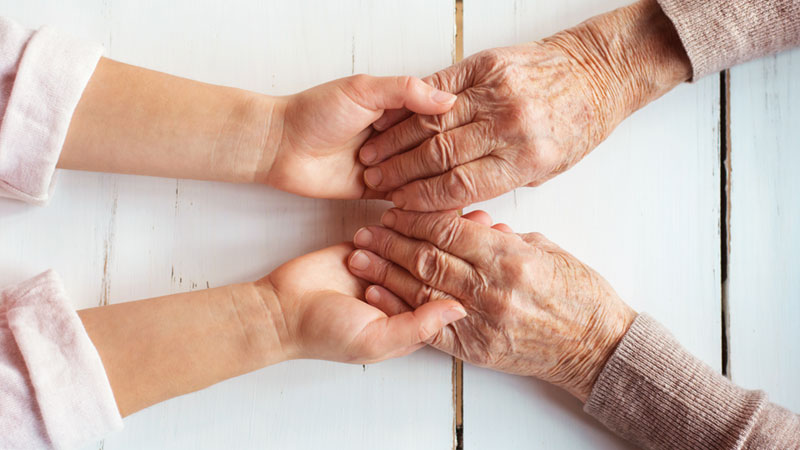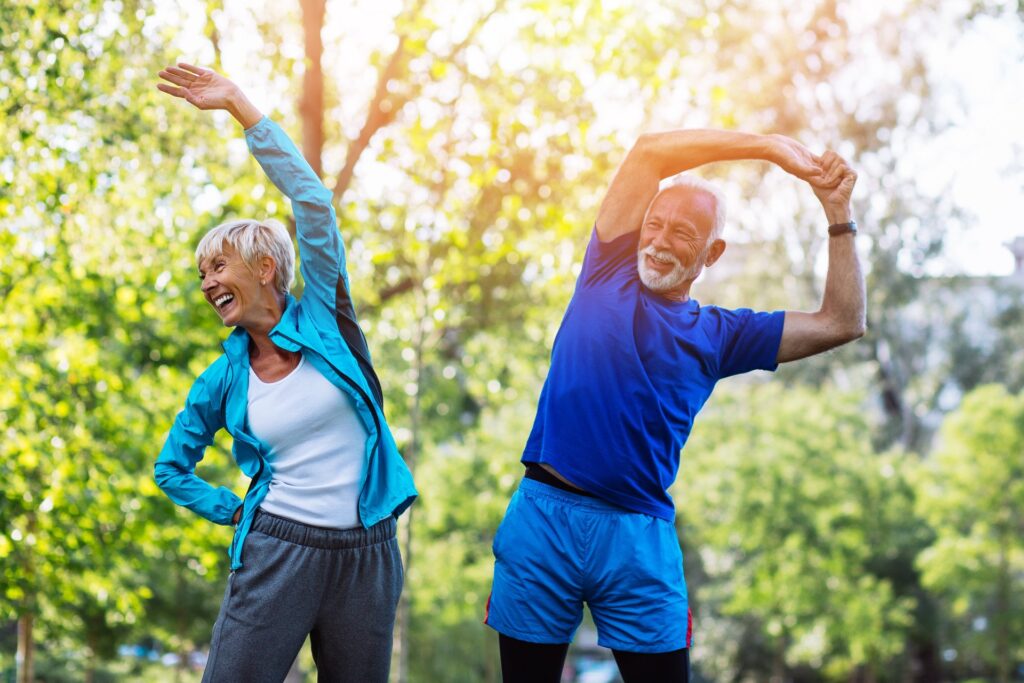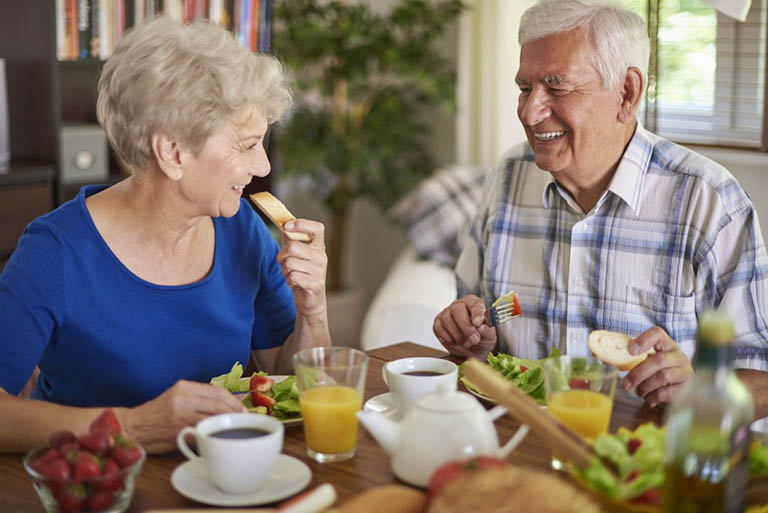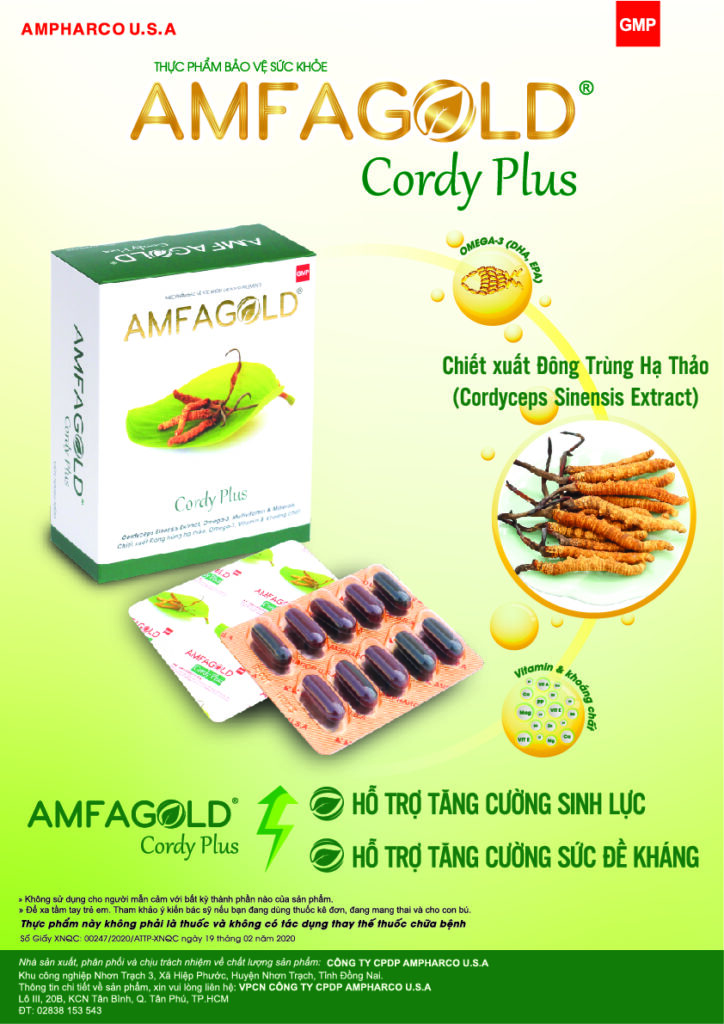TIPS TO PROMOTE HEALTH FOR OLDER ADULTS
Being busy sometimes make it hard for us to take good care of the health of our parents and grandparents. Caring for the elderly can be a difficult job that requires a lot of time and efforts. However, the following tips will make it easier for you to encourage and improve the health of older aldults in your family!
TIPS TO PROMOTE HEALTH FOR OLDER ADULTS
Being busy sometimes make it hard for us to take good care of the health of our parents and grandparents. Caring for the elderly can be a difficult job that requires a lot of time and efforts. However, the following tips will make it easier for you to encourage and improve the health of older aldults in your family!

1. Be aware that the older you get, the less healthy you are
Human health changes with each stage of life. As cells age, they function less well. Thus, most organs function less well as people age. Aging, can be accompanied by declines in physical and cognitive functioning that negatively affect health, well-being, and independence. In 2012, nearly one-third of Medicare recipients living in the community had a functional limitation in activities of daily living, such as bathing, dressing, and eating. (1)
Age brings a higher risk of chronic diseases such as dementias, heart disease, type 2 diabetes, arthritis, and cancer. (2) Older adults are also more likely to go to the hospital for some infectious diseases — including pneumonia, which is a leading cause of death for this age group. (3)
2. Promoting Wellness in Older Patients (4)
Getting older does not automatically mean poor health or that you will be confined to a walker or wheelchair. Plenty of older adults enjoy vigorous health, often better than many younger people. The following tips are suggested to help nourish and improve the health of the elderly.
2.1 Encouraging Exercise and Physical Activity
Exercise has proven benefits for older people. It reduces risk of cardiovascular disease, hypertension, type 2 diabetes, osteoporosis, obesity, colon cancer, and breast cancer. Older people may know that exercise is good for their health, but they may not have the motivation or encouragement to do it. There are several ways to encourage older patients to exercise:
– Asking about their daily activities and whether they engage in any kind of regular exercise or physical activity.
-Regularly let them know that regular physical activity—including endurance, muscle-strengthening, balance, and flexibility exercises—is essential for healthy aging.
– Help patients set realistic goals and develop an exercise plan. For examples, walk 15 minutres daily.
– Follow up to check progress and re-evaluate goals over time.
– Refer patients to community resources, such as mall-walking groups and senior center fitness classes.

2.2 Strategies to Improve Nutrition in Older Adults
Older patients may develop poor eating habits for many reasons. These can range from a decreased sense of smell and taste to teeth problems or depression. Older people may also have difficulty getting to a supermarket or standing long enough to cook a meal. And, although energy needs may decrease with age, the need for certain vitamins and minerals, increases after age 50. Try these strategies to encourage healthy diets:
– Emphasize that good nutrition can have an impact on well-being and independence.
– If needed, suggest liquid nutrition supplements, but emphasize the benefits of solid foods.
– If needed, suggest multivitamins that fulfill 100 percent of the recommended daily amounts of vitamins and minerals for older people, but not megadoses.
– Provide them with healthy supplements.

2.3. Healthy foods that are very good for the elderly
Nutrition is considered as a fundamental pillar of human beings for maintaining health or in development across the entire life span. There is a very well-known quote from Hippocrates stating that, “Let food be thy medicine and medicine be thy food”, describing the importance of nutrition for the prevention, treatment and management of diseases.
You can choose thousands of mushroom available containing various bioactive components with innumerable health benefits. Among them, Cordyceps has been used for its therapeutic values since long time and new promising features of cordycepin-based nutraceuticals are an advantage for the current population. Therefore, Cordyceps, as an edible mushroom, could be an ideal nutraceutical containing both nutritionally bioactive components as well as a source of various physiological benefits. Cordyceps could be considered as one of the most significant mushrooms, enriched with various nutrients with possible nutraceutical value. Abundant amounts of bioactive components are present in Cordyceps such as proteins, fats, essential amino acids, volatile oils, carotenoids, phenolic compounds, flavonoids, minerals (Fe, Ca, Mg, Ni, Sr, Na, Ti, Pi, Se, Mn, Zn, Al, Si, K, Cr), vitamins (B1, B2, B12, E and K). The scientific community is working relentlessly to develop naturally occurring or naturally derived product, such as nutraceuticals. Therefore, the addition of products from Cordyceps extract will help support the elderly to increase vitality, reduce fatigue, and enhance health.
Being busy sometimes make it hard for us to take good care of the health of our parents and grandparents. Caring for the elderly can be a difficult job that requires a lot of time and efforts. However, the following tips will make it easier for you to encourage and improve the health of older aldults in your family!

Nguồn:
(1) Healthy Aging In Action Advancing The National Prevention Strategy National Prevention, Health Promotion, And Public Health Council.
https://www.cdc.gov/aging/pdf/healthy-aging-in-action508.pdf
(2) https://www.cdc.gov/chronicdisease/pdf/factsheets/older-adults-H.pdf
(3) https://health.gov/healthypeople/objectives-and-data/browse-objectives/older-adults
(4) https://www.nia.nih.gov/health/promoting-wellness-older-patients
(5) Syed Amir Ashraf et al. Cordycepin for Health and Wellbeing: A Potent Bioactive Metabolite of an Entomopathogenic Medicinal Fungus Cordyceps with Its Nutraceutical and Therapeutic Potential. Molecules. 2020 Jun; 25(12): 2735.
https://www.ncbi.nlm.nih.gov/pmc/articles/PMC7356751/
- 1. Energize and focus your new year with Ginseng and Ginkgo Biloba
- 2. CAN PEOPLE WITH HYPERTENSION USE CORDYCEPS?
- 3. COMMON HABITS CAUSES CEREBRAL ISCHEMIA
- 4. TIPS FOR STAYING HEALTHY IN THE AUTUMN
- 5. THE EXPERT’S SHARING: THE KEY TO START A NEW DAY FULL OF ENERGY
- 6. GINSENG – “SPECIAL” HERBAL MEDICINE FOR FATIGUE PEOPLE

